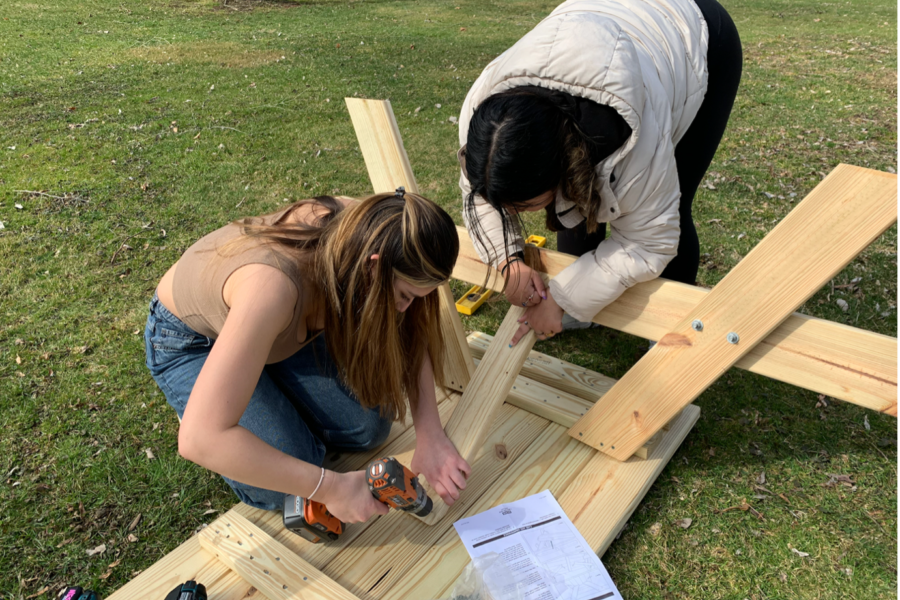On the very first day of the Workshop*, Dr. Jones — instructor in history and social science and the faculty lead for the historiography project — challenged our group to answer three fundamental questions that would shape our framework for understanding history for the rest of the term:
- What is capitalism?
- What should a democratic society look like?
- What is bias?
Unsurprisingly, we had a lot to talk about.
In a seminar-style round table over French toast and oft-replenished caffeine, the five of us sought out the differences in our approaches. We discussed capitalism as a transfer of power and democracy as an ideal, then formulated thoughts on how each can infringe on the other’s goals. All the while, Dr. Jones pushed us further with political theory — including Marx’s definition of capitalism as the obfuscation of relationships — and historical context.
The focusing lens for our project is the gilded age, which we examine as a window into multiple pasts — the past of the epoch itself and the pasts of the people who have recorded it in the subsequent century and a half. So far, we’ve used references from James and Mary Beard, Richard Hofstadter, John Dewey, and a modern collaborative textbook to track a broader cultural dialogue over values and understanding the world. These writings, though they cover the same time period, often butt heads, and their disagreements have solicited our most instructive conversations, enabling us to consider what goals and strategies we find convincing in our own time period.
Ultimately, it’s hard to say that we as a group found a “solution” to all the world’s woes. And yet there was something expressly cathartic about this exercise. Our underlying beliefs were questioned and what came out of it was a worthwhile and nuanced discussion about the role of education in shaping democratic society, the role of capitalism in shaping education, and the role of human bias shaping any system we choose to create. This, combined with the tonic of working in the Abbot Learning Garden in the afternoons, encouraged a far more thoughtful approach than the more confined mentality of other classrooms — even classrooms just a few feet away from our own.
In the coming weeks, we will continue to examine the gilded age and refine our understanding of its associated histories. We will march on in our quest to examine the systems underpinning society on a broader scale while using questions of the past to seek answers for the future. Though three days affords little time to revolutionize one’s way of thought, the first week of the workshop has been a promising glimpse at a term’s worth of valuable learning.
The historiography group includes Theo ’22, Emma ’22, Zeena ’22, Sean ’22, and Natalie ’22.




